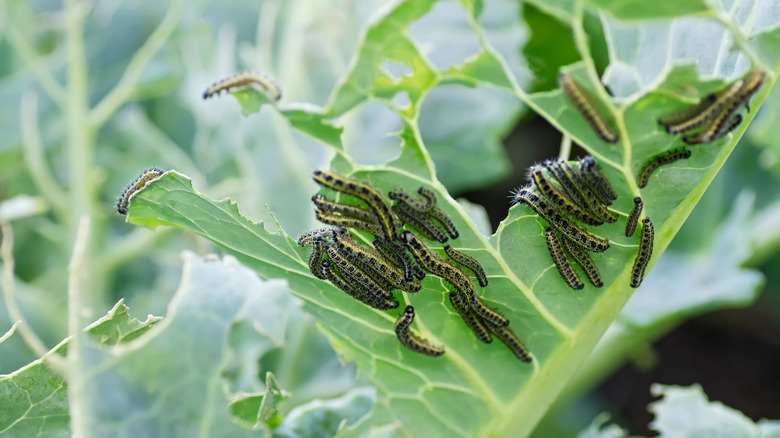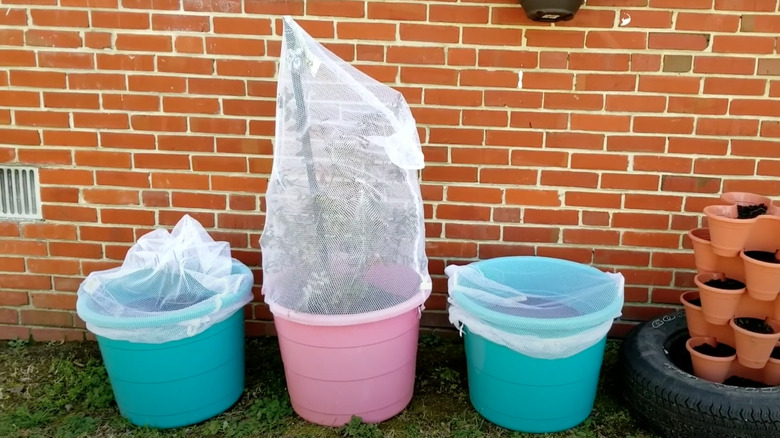How To Use Mesh Bags To Protect Your Vegetable Garden From Pests
If you have ever lost the battle against garden pests, we feel your pain. Those buggers can ravenously destroy any plant in your garden, often by eating leaves or spreading disease. One day you have full leaves on your healthy plants; the next, they are eaten down to the stem. One TikToker has a dollar store solution to keep pests off your plants using mesh bags.
The ideal way to prevent damage by large pests using a mesh laundry bag is to install it before the insects arrive in your area. If you find your plants already have damage, this hack can still work; just be sure to remove all existing pests and eggs on the plant. You can do this by removing these offenders by hand or by spraying them with an insecticide appropriate for the bugs from which you are trying to defend your garden. Once your plants are clear of bugs, you can cover them with a mesh bag to prevent future problems.
How to protect your plants
In the viral video, TikTok user @aussienation shows a significant amount of damage done to their young Brussels sprout plants by cabbage worms — the larvae stage of the white cabbage moth. Since the damage done to Brussels sprouts and other members of the brassica family is done by insects in the larval stage, they needed to take care of the existing cabbage worms and prevent their return. In this case, they used large mesh drawstring laundry bags as a barrier between the plant and the cabbage moth.
The thing that makes this process work is ensuring the moth cannot lay its eggs directly on the plant leaves. This TikToker placed a tomato cage over their plant and slid the mesh laundry bag over the cage. They simply tightened the drawstring around their container, and their Brussels sprouts were protected from cabbageworm damage for the rest of the season. Since the holes in the bag are not tiny, water can still easily reach the plant without removing the mesh.
Other impacts of this method
Using this mesh bag in the garden for plants that do not require pollination is ideal, but since the bag is so easy to put on and take off, you could try it on other types of plants. For example, if you have squash plants and battle vine borers every year, you could use this process to prevent the borer from being able to lay its eggs on the stem of your plants. The downside is that you would have to hand-pollinate your blooms to get veggies. Still, it might be worth the effort to remove the bag, pollinate the flowers, and put the bag back on to avoid using pesticides.
This hack will not work to protect plants against very small insects. Since the mesh in these bags is not a tight weave, common pests like aphids, white flies, and flea beetles can still get in. While you cannot use this method for your entire garden, it can protect against some of the most devastating pests, and we think it's brilliant.

